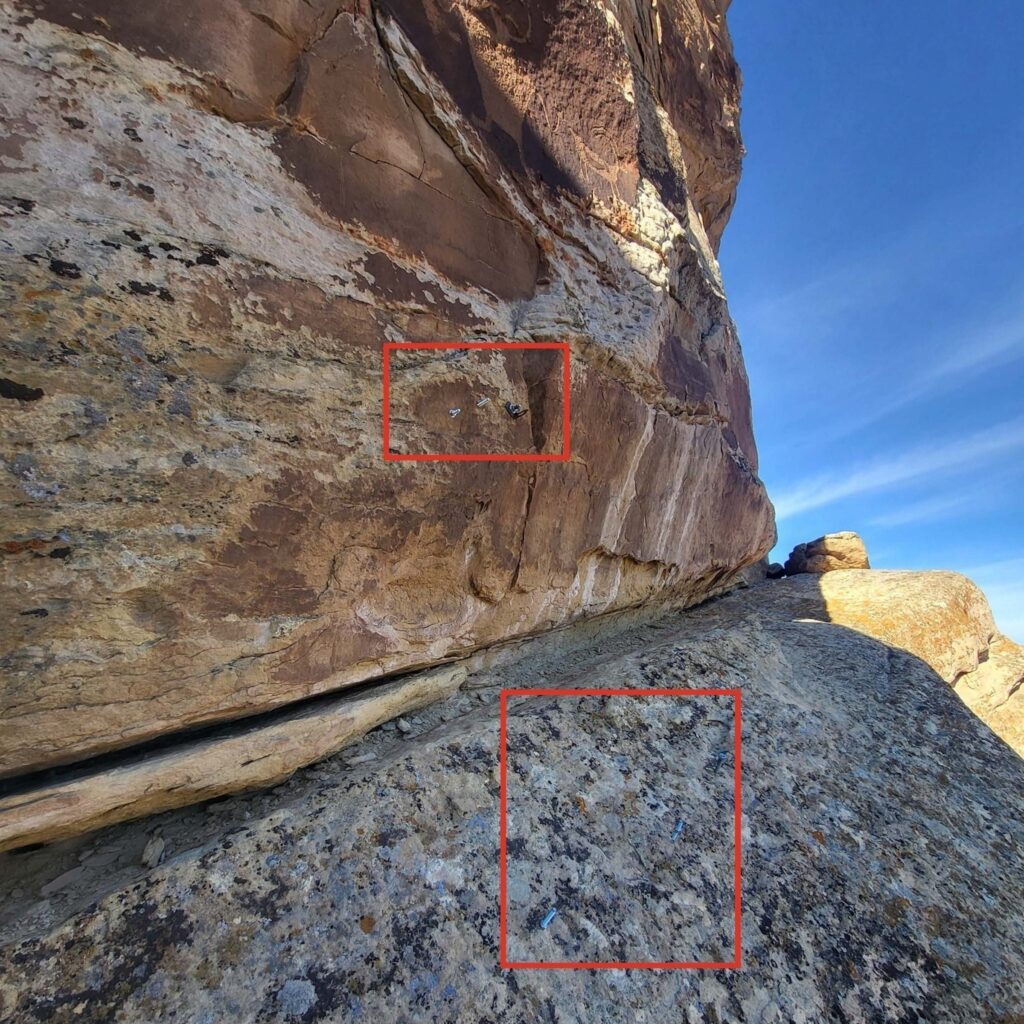[ad_1]
The Utah Bureau of Land Management (BLM) and the Uintah County Sheriff’s Office are seeking public assistance in identifying the culprits who illegally installed climbing bolts near a protected ancient petroglyph at a site east of the Colorado border last November.
In its call for tips on social media, the Utah BLM explained that the placement of the climbing bolts constitutes an “unauthorized alteration of a registered archaeological site” as the petroglyph panel depicting a pregnant sheep is on the National Register of Historic Places and is secured under the Archaeological Resources Protection Act of 1979.
There is limited information surrounding the history of the Pregnant Sheep panel, but according to the Natural History Museum of Utah, similar petroglyphic elements from the southern part of the state have been dated to around 1100 CE.
Three climbing bolts were installed on the stony surface just below the petroglyph, and three others were discovered on the ledge underneath the site. Only one bolt had a climbing ring affixed to it.

Various petroglyph panels and examples of prehistoric rock art across the state have been subjected to vandalism in recent history. The discovery of the climbing bolts in November coincided with a separate incident in which two people were documented carving into petroglyphs along the Wire Pass Trail in Kane County. A woman was arrested in early December in connection to the vandalism.
While petroglyphs and rock art are crucial archaeological evidence of the people who came and survived off the land before us, they’re also regarded as sacred ancestral sites to the Indigenous populations of the area.
“For us, as tribal people, these are our churches,” Autumn Gillard, the cultural resource manager for the Paiute Indian Tribe of Utah, to NBC affiliate KSL News regarding the defacement. “When folks go in and they vandalize panels, or they vandalize cultural sites, we correlate it to the same thing as if somebody was to go into a temple or a religious space and were to write graffiti all over it or to write their name all over it.”
[ad_2]
Source link

